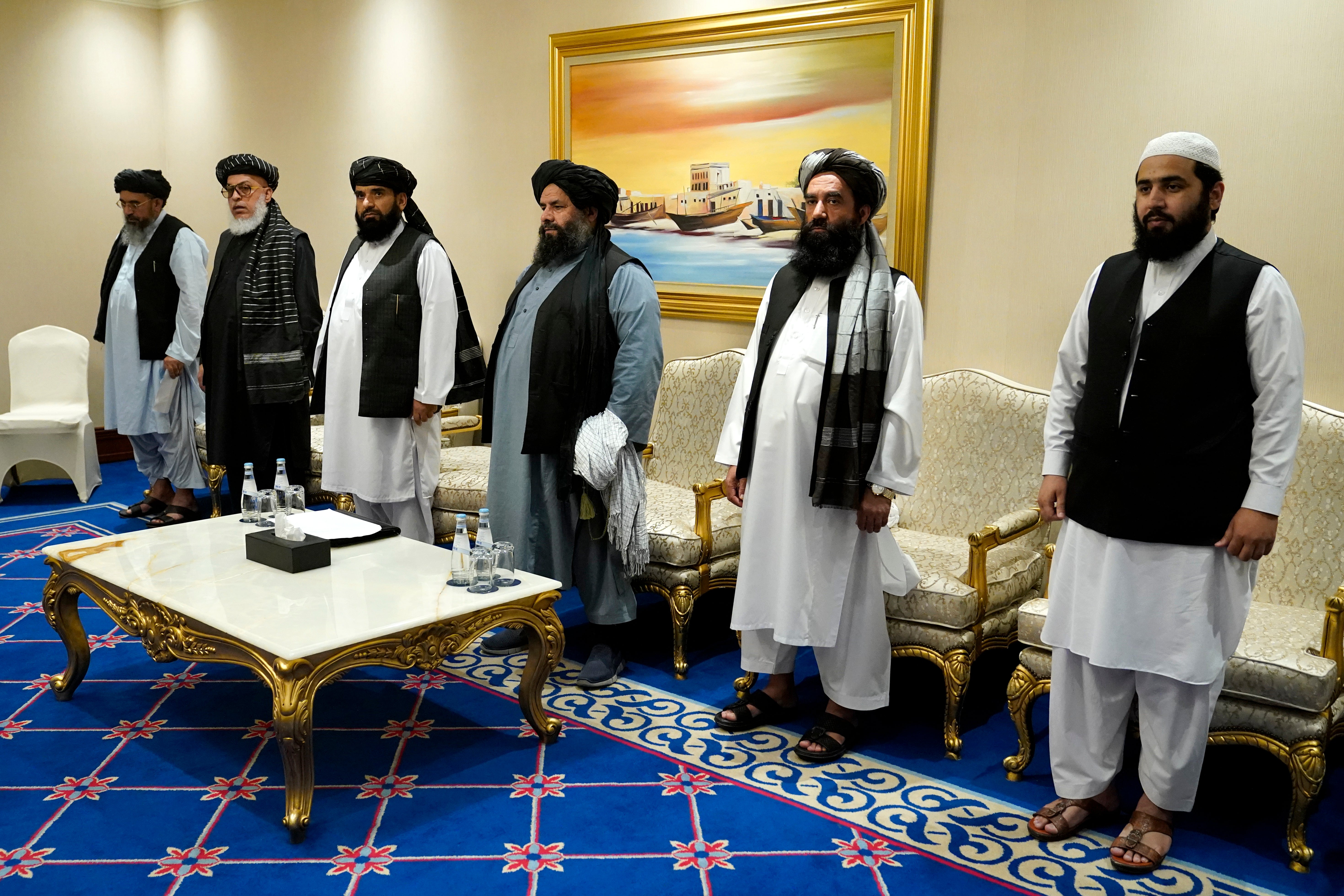US envoy: Afghan, Taliban team ready to set talks agenda
The U.S. envoy who brokered the ongoing peace talks between the Afghan government and the Taliban says the two sides have overcome a three-month impasse and agreed on rules and procedures for the negotiations

Your support helps us to tell the story
From reproductive rights to climate change to Big Tech, The Independent is on the ground when the story is developing. Whether it's investigating the financials of Elon Musk's pro-Trump PAC or producing our latest documentary, 'The A Word', which shines a light on the American women fighting for reproductive rights, we know how important it is to parse out the facts from the messaging.
At such a critical moment in US history, we need reporters on the ground. Your donation allows us to keep sending journalists to speak to both sides of the story.
The Independent is trusted by Americans across the entire political spectrum. And unlike many other quality news outlets, we choose not to lock Americans out of our reporting and analysis with paywalls. We believe quality journalism should be available to everyone, paid for by those who can afford it.
Your support makes all the difference.The U.S. envoy who brokered the ongoing peace talks between the Afghan government and the Taliban said Wednesday the two sides have overcome a three-month impasse and agreed on rules and procedures for the negotiations.
The development is significant as it means the warring sides are getting closer to actually starting to negotiate the issues that could end decades of fighting in Afghanistan and determine the country's post-war future. But first they must decide on the agenda for the negotiations, which is the next step.
In a series of tweets, U.S. envoy Zalmay Khalilzad said there was a signed document and urged both the Taliban and the government to get down to the business of negotiating a “political roadmap and a cease-fire.”
The three-page document lays out the rules and procedures for the negotiations, which are taking place in Qatar where the Taliban have long maintained a political office.
Afghans “now expect rapid progress on a political roadmap and a ceasefire. We understand their desire and we support them,” Khalilzad tweeted.
A cease-fire, rights of women and minorities, and constitutional amendments are expected to top the agenda. But the list is likely to be long and contentious, with issues such as safety guarantees for thousands of Taliban fighters who disarm, as well as for disbanding the heavily armed militias loyal to Kabul warlords, many of them allied either with the government or opposition politicians.
U.S. Secretary of State Mike Pompeo, who on Feb. 29 signed a Taliban-U.S. deal that paves the way for withdrawal of American troops from Afghanistan, welcomed the agreement.
“As negotiations on a political roadmap and permanent ceasefire begin, we will also work hard with all sides in pursuit of a serious reduction of violence,” he said.
Khalilzad’s announcement was not unexpected — last month, the Taliban said the rules and procedures were settled and the U.S. said last week it was all but wrapped up. But then the Afghan government said it had concerns with the some of the words in the preamble that set off accusations that Afghan President Ashraf Ghani was holding up the deal. His spokesman denied this.
There were no details about the document, but Taliban spokesman Mohammed Naeem said the two sides have appointed a committee to hammer out the agenda items.
Since the Afghan-Taliban talks started in September, violence has spiked significantly. The Taliban have staged deadly attacks on Afghan forces while keeping their promise not to attack U.S. and NATO troops. The attacks have drawn a mighty retaliation by the Afghan air force, backed by U.S. warplanes. International rights groups have warned both sides to avoid inflicting civilian casualties.
Still, Washington announced last month it was speeding up its troop withdrawal by pulling out 2,500 more troops by January and leaving barely 2,000 American soldiers in Afghanistan. NATO, with its 11,000 soldiers currently in the country faces a dilemma in deciding the pace of its own withdrawal. The U.S.-Taliban deal from February calls for NATO to be out of Afghanistan by May.
Taliban today control or hold sway over nearly half of Afghanistan and are at their strongest since the 2001 U.S.-led invasion toppled their regime over sheltered al-Qaida mastermind Osama bin Laden.
Many Afghans, particularly in larger urban areas fear a return of their repressive regime that harshly punished those who defied their strict Islamic edicts. Unlike when they ruled, the Taliban now say they will allow girls to go to school and women to work and hold public office, though they will not allow a woman to become president or a chief justice of Afghanistan's Supreme Court.
___
Associated Press writer Tameem Akhgar in Kabul, Afghanistan, contributed to this report.